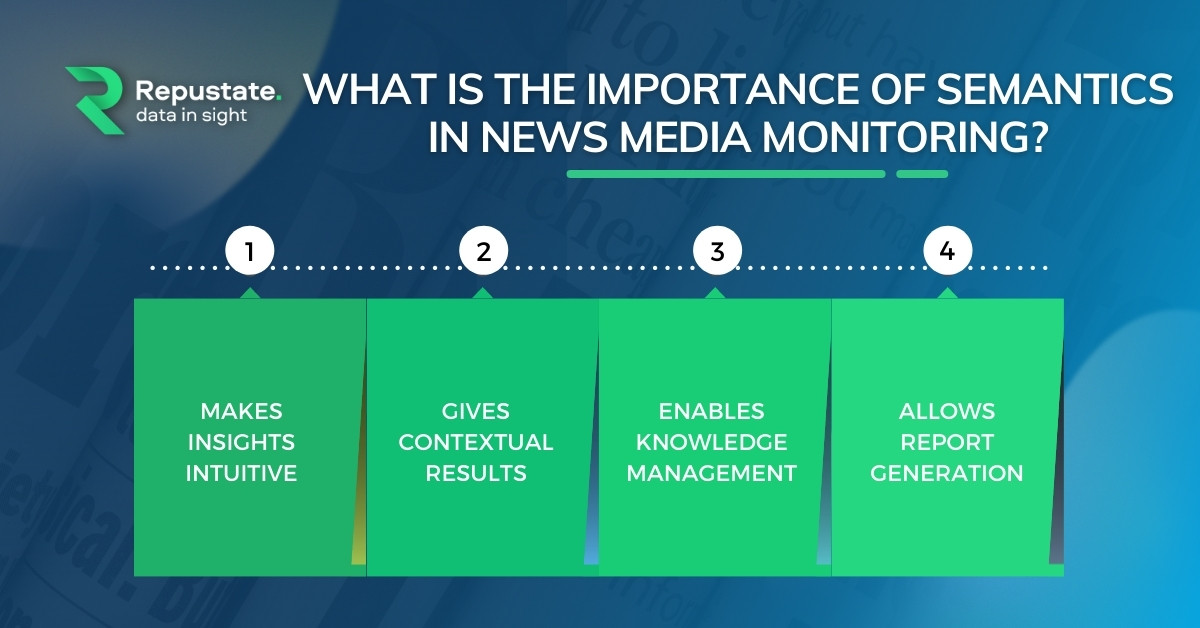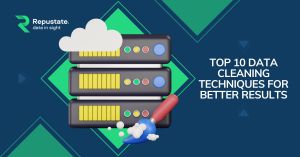Why Is Semantic News Monitoring Better Than Lexical Search?
A news media monitoring platform allows you to monitor news sites, news feeds, social media, and other sources for news and reviews about your brand and then aggregates all this information to give you valuable insights. Through news and social engagement it allows you to see how people really feel about your brand through sentiment analysis and mapping.
A powerful media research platform for news sentiment analysis not only lets you manage and maintain your brand’s reputation but also shows you where you can improve. Some would think that using lexical search to find the information they need or using a tool that applies lexical search to aggregate data is enough. But the problem is that while lexical search can be useful, it presents serious limitations because it doesn’t give you any reasoning behind the findings. This is only possible with sentiment analysis.
With that in mind, in this article, you will understand why semantic news media monitoring is more effective than lexical news analysis and how we do it at Repustate.
What Is News Media Monitoring?
The first step in understanding why semantic news media monitoring is better than lexical search is knowing what news media monitoring actually is. News media monitoring, similar to social media listening, allows you to listen to news media for mentions about your brand, your industry, or any other keyword or topic that’s important for your business.
In this way, you gain valuable insights into your marketing campaigns and initiatives, your competitors, and your industry which allows you to keep a close eye on your business reputation and compare it to industry benchmarks. News media monitoring does not only allow you to see how your brand is portrayed in the media but also allows you to manage it and improve it where necessary.
Media monitoring through a news media monitoring platform is efficient and accurate when it is done using a machine learning algorithm that automates the whole process. Whether you are a government organization, healthcare provider, clothing manufacturer, e-commerce company, or any other industry, news monitoring can be valuable to your business.
Limitations of Lexical Search or Keyword Search
Considering the above, the question is why not just use keyword or lexical searches to find mentions about your brand on news media instead of investing in a news media monitoring platform? The reason is that even though keyword searches can be helpful when you want to find specific information in vast amounts of data, it has serious limitations when it comes to scouring through millions of news and media pieces to gain insightful information. News sentiment analysis can give you nuggets of information from the vast sea of data that you would probably be unaware of, had it not been for an AI-model’s deep search and neural network finding that particular combination of aspect-co occurrence.
Unlike a semantic algorithm, when you use keyword searches for news monitoring services, search engines will help you do this by identifying keywords wherever they appear in the content. What they don’t do is take into account the specific meaning of a word or the context in which it appears. This is problematic in news media monitoring because a single word may have many different meanings.
The inevitable result is that you are presented with irrelevant information relating to your search. Here, another major drawback of keyword searches is that they often miss relevant information because a query didn’t contain the keyword used to do the search. Stemming from this, keyword searches often also produce a large number of results that all contain the keywords in the query but lack any causal connection between the words which ultimately makes the results unusable if not irrelevant.
Knowledge graphs
The answer to these issues is in semantic search. In contrast to keyword searches, when a news media monitoring platform uses semantic search, it takes the searcher’s intent into account to find the true meaning of words. Knowledge graphs in a machine model tie in with named entity recognition, and give you the information you are looking for even though the query may not contain a particular keyword. The algorithms do this by interpreting and making sense of concepts and meanings by associating them with related concepts which are built into the system though knowledge graphs. The results are that you get presented with insights that are more accurate and relevant that allow you to then make better decisions based on the information.
Checkout how buisnesses use the News Analysis API.
What Is the Importance of Semantics in News Media Monitoring?
Let’s look and why it’s so important in news media monitoring to apply semantics. A semantic algorithm -

1. Makes Insights Intuitive
With semantic search, you can input a search query without actually knowing the specific keyword or exact terms relating to what you’re looking for. Irrespective of your query, you’ll then be able to retrieve the information you’re looking for. It’s able to do this because semantic search tools analyze, recognize, and organize unstructured data through text and video content analysis. An efficient platform will enable you to see all the findings on a sentiment analysis dashboard.
2. Gives Contextual Results
A news media monitoring platform that incorporates intelligent search will attempt to deduce what a specific search is about even if the search does not relate to previous searches. It does this by attaching a contextual connection between the search query and elements like your search history, locations, commonly used words, and phrases.
Learn more about Fuzzy matching and how closely is it related to the semantic search.
3. Enables Knowledge Management
With the right news media monitoring platform that incorporates semantic search, you will be able to improve your knowledge management that, in turn, allows you to find relevant and actionable content quicker and get better insights faster. It does this by organizing all of your data and content and making it instantly searchable. A custom, intelligent search engine based on your specific requirements is then used to ensure that all information is immediately available for search and retrieval. For example, Repustate helped the David Allen Company in the knowledge management of its content which includes 9 terabytes of data and 100,000 documents.
4. Conversational & Allows Report Generation
An intelligent search solution understands queries in conversational language and retrieves information and responds in the same way. It’s able to do this by implementing natural language processing (NLP) algorithms that are able to make sense of what you’re searching for and provide you with the most relevant, personalized answer.
Click here to learn about the top News monitoring tools.
Conclusion
At its core, semantic news media monitoring involves looking past the lexical meaning of words and finding relevant and accurate information based on intent and logic. At Repustate, we’ve taken this a step further than the analysis and intelligent search of text data. Our latest technological advancements include data mining audio and video content for the same valuable insights that text provides.
Our sentiment analysis API enables you to search inside video for the insights you need to make your processes more efficient, your staff more productive, and generate more revenue. Repustate also enables you to implement the voice of the customer that allows you to enhance your customer experience. In addition, all these insights are available on one central sentiment analysis dashboard which makes it easy to find relevant, actionable insights quickly and easily.
 Home
Home
 Dec 7, 2021
Dec 7, 2021

 Jeremy Wemple
Jeremy Wemple
 Dr. Ayman Abdelazem
Dr. Ayman Abdelazem
 Dr. Salah Alnajem, PhD
Dr. Salah Alnajem, PhD
 David Allen
David Allen

 Repustate Team
Repustate Team

